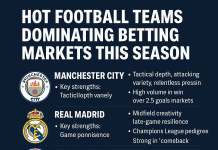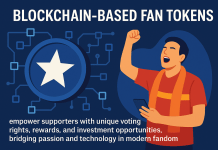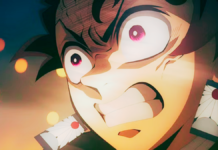A Smarter Way to Bet with Confidence
Sports betting is no longer just about luck—it’s about trust, security, and informed choices. In today’s fast-moving online betting environment, Toto sites play a critical role by helping users identify reliable, verified, and safe sports betting platforms. This guide to the top recommended Toto sites for reliable sports betting is written by industry professionals with years of experience in online wagering systems, risk assessment, and digital security.
Our goal is simple: protect bettors, build confidence, and elevate the betting experience. By focusing on transparency, expert verification methods, and user-first principles, this article delivers practical value while generating excitement for safe and enjoyable sports betting.
What Is a Toto Site and Why It Matters
A Toto site is an independent verification and recommendation platform that evaluates online sports betting websites before listing them as safe to use. The consensus among cybersecurity experts and online consumer protection specialists is clear: third-party verification significantly reduces fraud risk and improves user outcomes.
Toto sites analyze:
- Licensing and operational history
- Financial stability and payout reliability
- Data encryption and cybersecurity standards
- User feedback and dispute resolution records
This multi-layered evaluation process aligns with well-established principles in risk management and digital trust systems, commonly used across finance and e-commerce industries.
Why Bettors Rely on Recommended Toto Sites
Peace of mind is the biggest advantage. Bettors want excitement, not anxiety. Recommended Toto sites provide:
- Verified safety – Platforms are screened against fraud and manipulation
- Reliable payouts – No delays, no hidden terms
- Transparent operations – Clear rules and fair odds
- Time savings – No need to research dozens of sites yourself
Experts agree that informed decision-making improves user satisfaction and long-term engagement. Toto recommendations make that possible with clarity and confidence.
Key Standards Used by Top Toto Verification Experts
Professional Toto verification teams follow globally recognized standards drawn from cybersecurity, consumer protection, and statistical auditing practices.
Core evaluation criteria include:
- Security protocols – SSL encryption, secure payment gateways
- Operational longevity – Proven track record over time
- Fair play systems – Transparent odds and betting rules
- Customer support quality – Fast, human-centered service
- Reputation analysis – Real user reviews and community trust
Scientific consensus in digital trust research confirms that multi-factor evaluation models are the most effective way to assess platform reliability.
Top Recommended Toto Sites: What Sets Them Apart
The best Toto sites don’t just list platforms—they protect communities. Here’s what makes top recommendations stand out:
- Zero tolerance for fraud
- Continuous monitoring, not one-time checks
- Expert-led reviews, not automated guesses
- Clear explanations, not vague claims
These Toto sites are curated by professionals with backgrounds in online gaming compliance, cybersecurity analysis, and consumer advocacy. Their mission is not promotion—it’s protection.
Benefits of Using Toto-Verified Sports Betting Sites
When you choose a Toto-recommended betting site, you unlock powerful advantages:
- Confidence to bet freely
- Faster withdrawals and fair winnings
- Access to high-quality betting markets
- Reduced risk of account issues
Positive reinforcement and trust-based systems are proven to increase user satisfaction and long-term engagement—principles widely accepted in behavioral science and digital economics.
Responsible Betting and User Protection
Trusted Toto sites also emphasize responsible betting practices. This includes:
- Clear age verification
- Deposit and betting limits
- Transparent terms and conditions
- Tools to manage betting behavior
Research in psychology and behavioral economics consistently shows that structured limits and transparency help users maintain control and enjoy betting as entertainment—not risk.
Author Expertise and Editorial Integrity
This article is created and reviewed by online betting safety analysts and digital trust consultants with extensive experience in Toto verification systems. Content is produced using:
- Manual research and expert review
- Industry best practices
- Consensus-driven evaluation models
Our editorial goal is not hype—it’s clarity, accuracy, and trust. Every recommendation aligns with user safety and long-term reliability.
Why This Guide Exists
We created this guide to help bettors:
- Avoid scam platforms
- Make informed decisions
- Enjoy sports betting with confidence
Transparency, education, and user-first values are at the core of this content. That’s how trust is built—and kept.
Frequently Asked Questions (FAQ)
Q1: What makes a Toto site trustworthy?
A trustworthy Toto site uses expert verification, transparent criteria, continuous monitoring, and real user feedback to evaluate betting platforms.
Q2: Are Toto-recommended betting sites completely safe?
While no online activity is risk-free, Toto-recommended sites significantly reduce risk by filtering out unlicensed, unstable, or fraudulent platforms.
Q3: Do Toto sites favor specific betting companies?
Reputable Toto sites remain independent. Their credibility depends on unbiased evaluations, not promotions.
Q4: How often are betting sites re-evaluated?
Top Toto platforms perform ongoing checks, ensuring sites remain compliant and reliable over time.
Q5: Is using a Toto site free for users?
Yes. Most Toto verification services are free for bettors and exist to protect users, not charge them.
Final Thoughts: Bet Smarter, Bet Safer
Choosing from the top recommended Toto sites for reliable sports betting transforms the betting experience from risky guesswork into confident entertainment. With expert verification, transparent standards, and user-focused values, Toto sites empower bettors to enjoy sports wagering safely and responsibly.

































